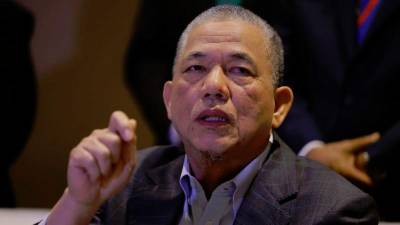
Nuclear power considered for ASEAN energy security and low-carbon future
KUALA LUMPUR : Nuclear power is being considered as a potential option to strengthen energy security and support ASEAN’s shift towards a low-carbon energy future. Deputy Prime Minister Datuk Seri Fadillah Yusof highlighted new technologies like small modular reactors as particularly promising for the region. For Malaysia specifically, the government is examining nuclear power’s role in its long-term energy strategy to ensure security, affordability, and sustainability. Fadillah, who is also Minister of Energy Transition and Water Transformation, stated they are taking careful steps guided by international best practices. “We are taking careful and transparent steps to build the institutional, technical, and human resource foundations necessary to make informed decisions on nuclear energy development,“ he said. He delivered these remarks during his keynote address at the ASEAN-Korea Sustainable Nuclear Energy Cooperation Forum. The forum was held alongside the 25th ASEAN Energy Business Forum in Kuala Lumpur today. Fadillah emphasized the invaluable collaboration with partners in South Korea and across ASEAN. He noted South Korea’s advanced nuclear technology and safety experience provides a strong basis for mutual learning. This partnership opportunity combines with ASEAN’s growing energy demand and sustainability goals. South Korea’s Ambassador to Malaysia Yeo Seungbae highlighted ASEAN’s emergence as an AI and digital hub. He stated rapid organisation and population growth have made the region one of the world’s fastest-growing electricity demand centres. Citing ASEAN Centre of Energy estimates, Yeo noted the region may install approximately 5.2 gigawatts of nuclear capacity by 2050. Many ASEAN members are now taking concrete steps toward nuclear production in partnership with South Korea. He mentioned Malaysia is following a comprehensive feasibility study assessing nuclear power as stable and clean. “As reflected in the 13th Malaysia Plan, the country is now taking preparatory steps to include nuclear energy in its power mix by 2031,“ Yeo added. South Korea’s active involvement in ASEAN nuclear initiatives reflects its proven record in safety and cost-effectiveness. Yeo noted South Korea currently operates 26 nuclear reactors supplying about 30% of its electricity. This positions South Korea as one of the world’s leading nuclear power countries. – Bernama